5 Eating Habits for Visceral Fat That Really Work, Say Dietitians

Most of us are likely tired of constantly being bombarded with advertisements for fad diets to try. These fast, trendy diets are tempting because of how easy they seem, but they aren't sustainable and are oftentimes very unhealthy. If losing visceral fat is your goal specifically, fad diets won't work nearly as well as gradually changing your daily eating habits.
To learn more about belly fat loss, we talked with two expert dietitians to get their advice on some of the habit changes that actually work for long-term, healthy, sustainable weight loss. Here's what they had to say, and for more healthy weight loss tips, check out 30 Essential Spring Superfoods for Weight Loss.
Follow the plate rule.
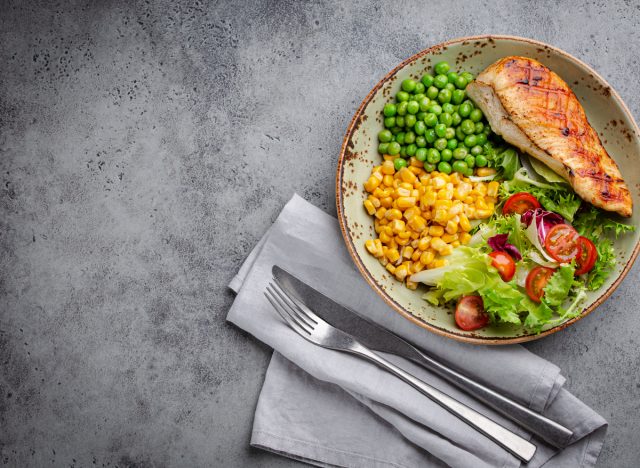
There's value in the specific foods you choose to eat on your weight loss journey, but sometimes it's also about making sure you balance out the types of food you eat as well.
"Many people carry extra weight around their midsection because they are eating too many calories, which can leading to fat storage," says Amy Goodson, MS, RD, CSSD, LD author of The Sports Nutrition Playbook and member of our medical expert board. "To help keep your body well-nourished and manage your calorie intake at meals, follow The Plate Rule. Make 1/4 of your plate a high-fiber carbohydrate like brown rice, whole grain bread, or quinoa, make 1/4 of your plate a lean protein like beef, fish, or chicken, and then fill half your plate with colorful vegetables. Veggies provide water and fiber content to help with feeling full faster for very few calories. Then, wait 15 minutes before you decide if you need more food, and if you do, go back for more veggies."
Eat more fiber.
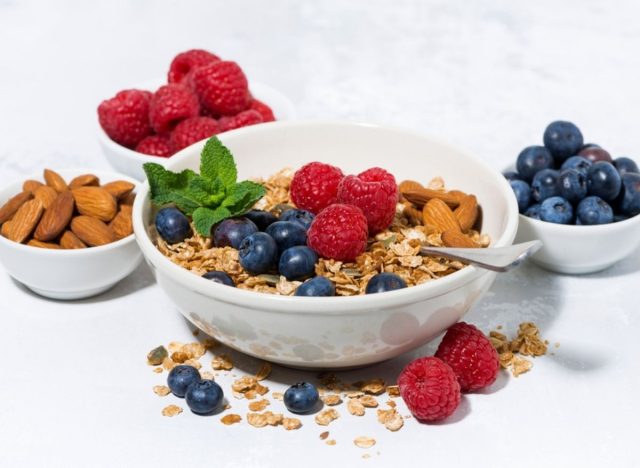
Eating a well-balanced diet that includes plenty of fiber is important for losing visceral fat.
"Fiber helps slow down digestion, meaning it helps get you full faster and stay full longer," says Goodson. "Consuming high-fiber food like whole grains, fruit with edible skin, or even nuts and seeds at meals and snacks might help you eat less, ultimately leading to losing some weight around your midsection. Some ideas include oatmeal with seeds and berries in the morning, adding nuts to a snack and choosing a whole grain to fill one-fourth of your plate at lunch and dinner."
Power your meals with protein.
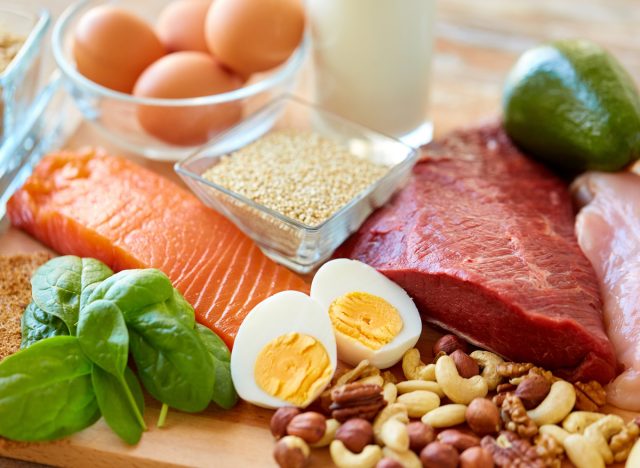
Another very important nutrient to make sure you get enough of during your weight loss journey is protein.
"Protein slows down digestion and helps you get full faster and stay full longer, just like fiber does. It also helps to stabilize blood sugar and energy levels," says Goodson. "Eating adequate protein at all meals and snacks can help you stay more satiated throughout the day, ultimately helping you eat less and decrease your calorie intake. Consuming a deficit of calories on a regular basis can help with losing weight and ideally decreasing visceral fat."
"I have my clients follow a personalized macro plan, and, to be very simple, I advise them to match protein in grams with their current weight (pounds)," says Courtney D'Angelo, MS, RD, author at Go Wellness. "Finding foods that are high in protein is the key to accomplishing your daily protein goals, and protein powder is also something we can add in there."
Eat carbs for energy.
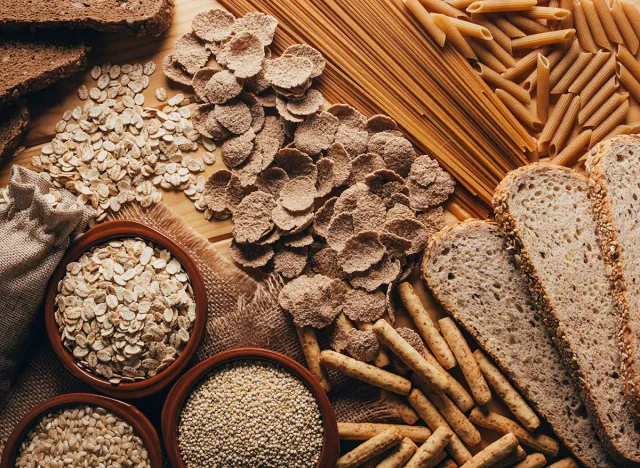
People often assume that losing visceral fat means you have to give up carbs, but this isn't true at all. Carbohydrates are a necessary for giving your body the nutrients and energy it needs, and incorporating healthy ones into your daily diet can help you reach your health goals.
"If we want to change our body composition and lose visceral fat, or any fat, we must put the work in with our exercise," says D'Angelo. "I generally recommend 45 minutes of cardio per day, and, in order to do that, you'll need a sufficient amount of energy. One of the best ways we can get that energy is by eating carbohydrates. Find good carbohydrates such as whole grains, vegetables, whole fruits, nuts, or beans and incorporate them into your diet."
Eat high-fat, healthy foods.
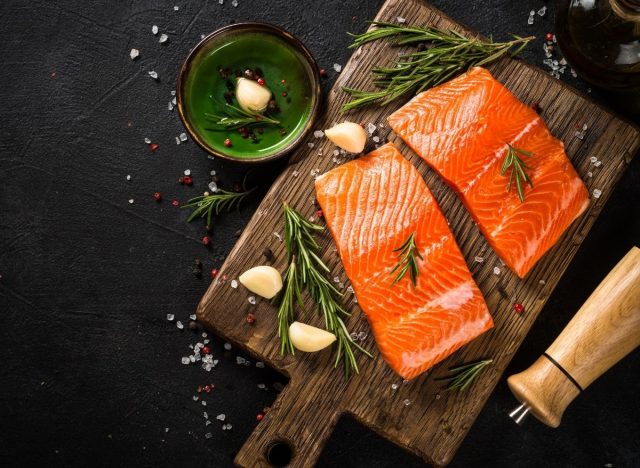
Along with protein and carbs, fat is another key nutrient that your body needs for weight loss. However, not all fat is created equal.
"Fat is another specific type of nutrient that your body needs to absorb vitamins, produce energy, and protect your brain and heart health," says D'Angelo. "But, there's a difference between 'good' fats and 'bad' fats. The 'good' fats help manage your weight, keep you mentally focused, fight fatigue, and manage your moods—all vitally important for getting rid of visceral fat. The 'good' fats are unsaturated fats and omega-3 fatty acids, so find those types of foods and add them into your daily diet as well."









